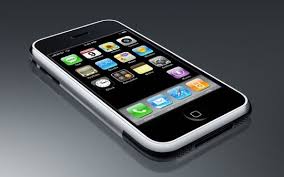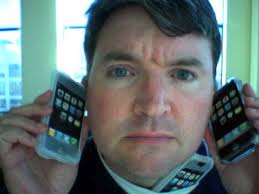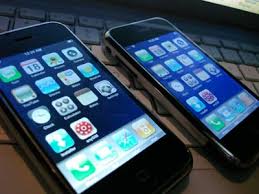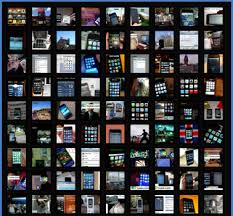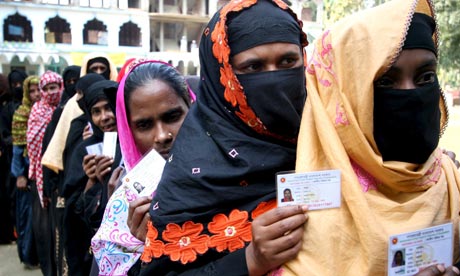Lessons for Other Smokers in Obama's Efforts to Quit

Will one of President-elect Barack Obama's New Year's resolutions be to quit smoking once and for all?

Barack Obama has reportedly tried to quit several times.
His good-humored waffling in various interviews about smoking made it plain that Mr. Obama, like many who have vowed to quit at this time of year, had not truly done so.
He told Tom Brokaw of NBC several weeks ago, for example, that he "had stopped" but that "there are times where I've fallen off the wagon." He promised to obey the no-smoking rules in the White House, but whether that meant he would be ducking out the back door for a smoke is not known. His transition team declined to answer any questions about his smoking, past or present, or his efforts to quit.
Antismoking activists would love to see him use his bully pulpit to inspire others to join him in trying to kick the habit, but he has not yet taken up their cause.
The last president to smoke more than occasionally was Gerald R. Ford, who was quite fond of his pipes. Jimmy Carter and both Presidents George Bush were reportedly abstainers, but Bill Clinton liked cigars from time to time, though he may have chewed more than he smoked.
Mr. Obama's heaviest smoking was seven or eight cigarettes a day, but three was more typical, according to an interview published in the November issue of Men's Health magazine. In a letter given to reporters before the election, Mr. Obama's doctor described his smoking history as "intermittent," and said he had quit several times and was using Nicorette gum, a form of nicotine replacement, "with success." Mr. Obama was often seen chewing gum during the campaign.
His pattern matches that of millions of other people who have resolved but stumbled in their efforts to give up cigarettes. Today, 21 percent of Americans smoke, down from 28 percent in 1988. Off-again-on-again smoking and serial quitting are common, as is the long-term use of nicotine gum and patches.
"It takes the average smoker 8 to 10 times before he is able to quit successfully," said Dr. Steven A. Schroeder, director of the Smoking Cessation Leadership Center at the University of California, San Francisco.
Dr. Schroeder said that counseling was helpful, and that if Mr. Obama were his patient, he would urge him to try it, even if only by telephone, toll free at 1-800-QUITNOW (1-800-784-8669). With nicotine replacements and counseling, quit rates at one year are 15 percent to 30 percent, Dr. Schroeder said, about twice that of those who try without help.
But Mr. Obama has apparently been chewing nicotine gum for quite a while. Is it safe? Dr. Neal L. Benowitz, another expert on nicotine addiction from the University of California, San Francisco, said that long-term use of the gum or patches, "if it keeps you off cigarettes, is O.K."
He said people had the best chances of quitting if they used more than one type of nicotine replacement at the same time — like wearing a patch every day, but also using the gum when cravings took hold.
Studies have found that 5 percent to 10 percent of people who try nicotine replacements were still using them a year later, and nicotine itself appears not to be harmful, except possibly during pregnancy and for people at risk for diabetes, Dr. Benowitz said. The risks of cancer, other lung disease and heart problems come from other chemicals in tobacco smoke.
"If nicotine is harmful, it is a minuscule risk compared to cigarette smoking," he said. "If people want to continue using gum or patches, and not cigarettes, their health will be enhanced."
Nicotine can speed up the heart rate somewhat, he said, and it may raise blood pressure slightly. More important, it can reduce the body's sensitivity to insulin and may aggravate diabetes or prediabetic conditions. It also constricts blood vessels in the skin and may interfere with wound healing.
But still, Dr. Benowitz emphasized, "if the choice is between taking nicotine or smoking, nicotine is far, far better."
Falling off the wagon is typical. Three months, six months and a year are major milestones, and most people who can quit for a year will be able to stay off cigarettes for good, Dr. Benowitz said. But about 10 percent relapse even after a year or more.
"It's generally prompted by a stressful situation, when they're fatigued and they need to concentrate and focus," Dr. Benowitz said. "Obama talked about that. People are used to having a cigarette in that situation."
Nicotine is strongly addictive for many people, and withdrawal can leave them irritable, restless, sleepless, depressed and struggling to concentrate. Some experts say it is harder to give up than cocaine or heroin.
"Then there is something called hedonic dysregulation," Dr. Benowitz said. "It involves pleasure. Nicotine involves dopamine release, which is key in signaling pleasure. When people quit smoking, they don't experience things they used to like as pleasure. Things are not as much fun as they used to be. It's something you get over in time."
People become hooked on nicotine in part because, like alcohol and other addicting drugs, it alters the brain. Some of the changes are long-lasting, and the younger people are when they take up smoking, the stronger their addiction.
"There is increasing evidence that you lay down new neural circuits related to smoking, sort of memory tracks," Dr. Benowitz said. "Nicotine does it, and other aspects of smoke do, too. Your brain is forever changed."
Those memory tracks could be hindering Mr. Obama's efforts to quit. Dr. Schroeder also noted that for someone who smoked fewer than 10 cigarettes a day, as Mr. Obama reportedly did, nicotine replacements may be less helpful because the addiction may be more to the habit than to nicotine.
One of the best things that President-elect Obama has going for him is that he is a jogger.
"There is increasing evidence that if you can exercise, it's often helpful" in quitting, Dr. Benowitz said. "I hope Obama can still find time to play basketball on a regular basis."
...!... ...!... ...!... ...!... ...!... ...!... ...!... ...!... ...!... ...!... ...!... ...!... ...!... ...!... ...!...
AN/Today
Africa News Today
"One better Africa is possible"
::::::::::::::::::::::::::::::::::::::::::::::::::::::::::::::::::::::::::::::::::::::::::::::::::::::::::::::::::









